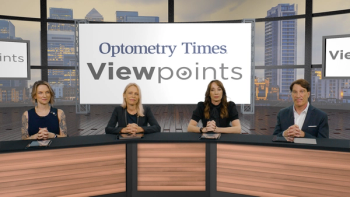
AAOpt 2022: Acute effects of cannabis on patients
Jason S. Ng, OD, PhD, FAAO, shares highlights from his 2022 American Academy of Optometry presentation, "Cannabis and vision: acute effects."
Jason S. Ng, OD, PhD, FAAO, associate professor at Marshall B. Ketchum University, speaks with Optometry Times®' Kassi Jackson on highlights from his discussion titled, "Cannabis and vision: acute effects," which he presented during the 2022 American Academy of Optometry (AAOpt) annual meeting in San Diego.
Editor's note: This transcript has been edited for clarity.
Jackson:
Hi, everyone. I'm joined today by Dr. Jason Ng, associate professor at Marshall B. Ketchum University. He's here to share highlights from his discussion titled, "Cannabis and vision: acute effects," which he is presenting during the 2022 American Academy of Optometry meeting this year in San Diego. Thank you for being here, Dr. Ng.
Ng:
Thank you for having me.
Jackson:
Would you please share with us some key takeaways from this presentation?
Ng:
Yeah, so I think the biggest thing is: cannabis being legalized now in 19 states actually encompasses almost 50% of the adult population. So it doesn't sound like very many states, but the majority of the US adult population have access now. And so I think we're gonna see more and more patients—because they have access—possibly using cannabis. So from a public health perspective, we need to be aware of that.
And then we also need to be aware of separating the users versus the abusers. And there's actually a lot to talk about in this area with cannabis and sort of acute effects and chronic effects, the full body, and the eyes.
I just focused on the eye and the acute effects. So these are things like someone just took cannabis before coming in for an eye exam, you know, within an hour or so, we might see certain things in our exam that we should be aware of.
Jackson:
And why is this topic so important for optometrists to address?
Ng:
So again, part of it is, you know, knowing that more patients can be taking cannabis and in the states where it's legal, our intake forms for patient history don't always ask about cannabis specifically. We just usually have a line item for illicit drug use, and patients don't think that's something they should put on there anymore, because cannabis isn't illicit, effectively. And so that's important to just ask them specifically about [cannabis] use.
And like I was saying before, there are definitely things that if you've just taken cannabis we might see...that includes like increased pulse rate and increased blood pressure, a little bit of eye redness, and then, something like a small drop in intraocular pressure, eye pressure... So those are definitely things we need to account for and be aware of as optometrists...
Jackson:
And what does this awareness mean for patient care?
Ng:
Yeah, so again, I think, knowing what the findings are, if the patient has taken cannabis recently, and knowing that those [findings] would be not possibly problems. So if we look at a patient, they have red eyes, we have a long differential of what we might think cause that, but if we know the patient or cannabis recently, then we could realize that maybe that's not something we have to diagnose more fully, and follow down many different paths.
The other thing to be aware of, I think, for patient care is a lot of these acute effects, they were off in 2, 3, 4 hours at most. And so these things, you know, if you're worried about a certain patient, we could always have them follow up and come back, realize and see that these things went away.
Jackson:
So anything you'd like to be sure to mention that we didn't touch on?
Ng:
Yeah, I mean, I guess the other thing is optometrists should also know that cannabis doesn't seem to affect visual acuity. So we don't expect to see anything there. But I think from the patient's perspective, one of the things that's kind of a rising issue is driving driving under the influence of cannabis. There aren't good tests for that right now, but there are definitely people working on that.
And so again, if we see a patient that we know had just taking cannabis, we need to counsel and advise them about driving because studies have shown a higher risk, possibly due to cognitive impairment, reaction time and mentally wandering, not necessarily so much the eye function, although again, research is kind of now looking at that. There are definitely effects on the retina, too...
Jackson:
Dr. Ng, thank you for your time today.
Ng:
Thank you very much.
Newsletter
Want more insights like this? Subscribe to Optometry Times and get clinical pearls and practice tips delivered straight to your inbox.

